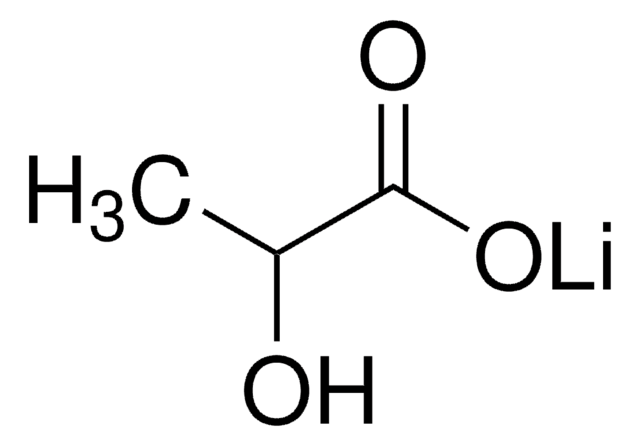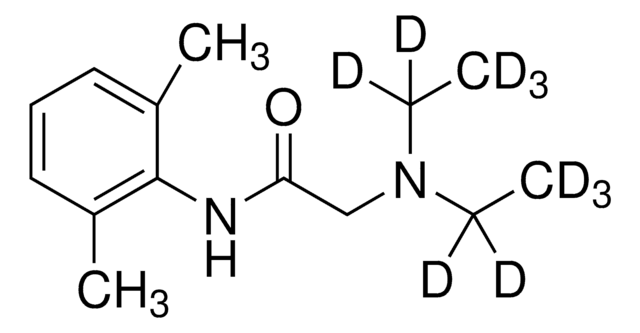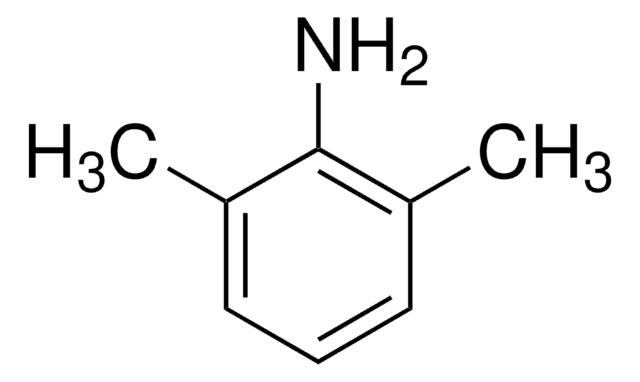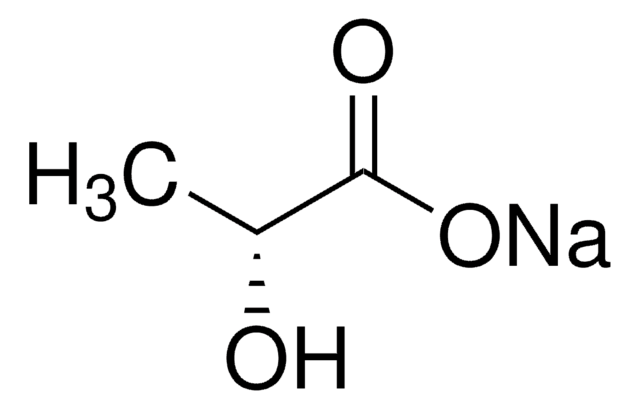L2250
Lithium L-lactate
≥98% (titration)
Synonym(s):
(S)-2-Hydroxypropionic acid lithium salt, L-Lactic acid lithium salt, Sarcolactic acid lithium salt
About This Item
Recommended Products
Assay
≥98% (titration)
form
powder
technique(s)
HPLC: suitable
gas chromatography (GC): suitable
impurities
<2% water (Karl Fischer)
color
white
solubility
water: 100 mg/mL, clear, colorless
cation traces
Li: 5.26-9.30% (anhydrous)
application(s)
food and beverages
hematology
microbiology
storage temp.
2-8°C
SMILES string
[Li+].C[C@H](O)C([O-])=O
InChI
1S/C3H6O3.Li/c1-2(4)3(5)6;/h2,4H,1H3,(H,5,6);/q;+1/p-1/t2-;/m0./s1
InChI key
GKQWYZBANWAFMQ-DKWTVANSSA-M
Looking for similar products? Visit Product Comparison Guide
General description
Recent research indicates that Lithium L-lactate exhibits mood-stabilizing effects, particularly in individuals with bipolar disorder. This impact is believed to be linked to its influence on the phosphatidylinositol (PI) pathway and the inhibition of glycogen synthase kinase-3 (GSK-3) activity. Beyond bipolar disorder, ongoing investigations are exploring the potential applications of Lithium L-lactate in neuropsychiatric conditions, including studies related to depression, anxiety, and schizophrenia, highlighting its significance in the areas of metabolomics and biochemical research.
Application
- for the quantification of lactic acid using analytical methods
- for the quantification of lactic acid using high-performance liquid chromatography
- as a standard for L-lactic acid assay
Features and Benefits
- Ideal for Metabolomics, Biochemical and Cell Biology research
- Versatile and adaptable for wide variety of laboratory and research applications
Other Notes
Storage Class Code
11 - Combustible Solids
WGK
WGK 3
Flash Point(F)
Not applicable
Flash Point(C)
Not applicable
Personal Protective Equipment
Certificates of Analysis (COA)
Search for Certificates of Analysis (COA) by entering the products Lot/Batch Number. Lot and Batch Numbers can be found on a product’s label following the words ‘Lot’ or ‘Batch’.
Already Own This Product?
Find documentation for the products that you have recently purchased in the Document Library.
Customers Also Viewed
Protocols
Rapid analysis of DL-lactic acid in vegan yogurt using the Reflectoquant® Lactic Acid Test, and enzymatic reaction with Lactate Dehydrogenase (LDH).
Quick and accurate analysis of D- and L-lactic acid in dairy products using Reflectoquant® Lactic Acid Test upon reaction with lactate dehydrogenase (LDH).
Our team of scientists has experience in all areas of research including Life Science, Material Science, Chemical Synthesis, Chromatography, Analytical and many others.
Contact Technical Service









